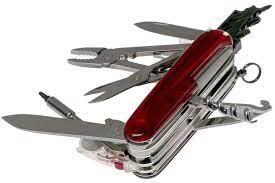Proprietary trading offers not only the potential for high earnings but also significant tax efficiency and financial benefits that make it an attractive career choice. Unlike retail traders who trade with personal funds and face complex tax obligations, prop trading operate under a structured firm setup, often benefiting from lower tax liabilities, cost-saving incentives, and access to firm capital.
Understanding the financial perks of proprietary trading can help traders maximize their income while ensuring compliance with tax regulations. This article explores the key tax advantages and financial benefits that set proprietary trading apart.
1. Tax Efficiency in Proprietary Trading
One of the biggest advantages of proprietary trading is the potential for greater tax efficiency compared to independent retail trading. Since proprietary traders use firm capital rather than personal funds, they are often structured differently in terms of tax obligations.
Key tax benefits include:
No Capital Gains Tax on Personal Funds
Since proprietary traders do not trade with their own money, they are typically not subject to personal capital gains tax on trading profits. Instead, they receive payouts in the form of performance-based compensation.
Business Expense Deductions
Many proprietary traders operate as independent contractors or under a company structure, allowing them to deduct trading-related expenses, such as software subscriptions, data fees, and research costs, which would otherwise be a personal burden for retail traders.
Potential for Lower Tax Rates
Depending on the jurisdiction and how a trader is classified (independent contractor, employee, or business entity), proprietary traders may benefit from lower tax rates compared to retail traders who must pay full capital gains taxes on every profitable trade.
Understanding these tax structures can result in significant cost savings and higher take-home profits for proprietary traders.
2. Financial Perks of Being a Proprietary Trader
Beyond tax efficiency, proprietary trading firms offer financial incentives that further enhance a trader’s earning potential and financial stability.
Key financial perks include:
Access to Firm Capital
Unlike retail traders who are limited by personal funds, proprietary traders trade with firm capital, allowing them to take larger positions and scale their strategies without personal financial risk.
Profit Sharing and Performance Bonuses
Proprietary traders typically earn based on their performance, meaning the more profitable they are, the higher their earnings. Many firms offer profit-sharing structures where traders keep a percentage of their gains, increasing their potential income.
Low Trading Costs
Proprietary firms provide traders with institutional-level trading commissions, reducing transaction costs significantly compared to retail brokerage fees. This allows traders to retain more of their profits.
No Need for Personal Trading Accounts
Since proprietary traders operate through firm accounts, they avoid the expenses associated with maintaining personal brokerage accounts, including deposit requirements, margin interest, and withdrawal fees.
These financial advantages make proprietary trading an efficient and cost-effective career path compared to independent trading.
3. Long-Term Wealth Growth with Proprietary Trading
The combination of tax efficiency, low overhead costs, and firm-backed capital allows proprietary traders to retain a larger portion of their earnings and reinvest in skill development, leading to sustained financial growth.
Additionally, some firms provide retirement and investment options, further enhancing a trader’s long-term financial security. By maximizing profits and minimizing tax burdens, proprietary traders can achieve greater financial success over time.
Conclusion
Proprietary trading provides not only higher earning potential but also key tax advantages and financial perks that set it apart from retail trading. With firm-backed capital, lower tax liabilities, and reduced trading costs, proprietary traders enjoy a more efficient and profitable trading career.
For those looking to maximize financial growth while benefiting from a structured trading environment, proprietary trading offers a highly rewarding and sustainable career path.



